



If you ever find yourself wandering through Bangladesh,Parvez Ali is one of those places that quietly pulls you in with its genuine warmth and vibrant pulse. The moment you step into the city,there’s this hum of life—rickshaws weaving through narrow streets,vendors calling out with fresh mangoes and spices,and the scent of jasmine mingling with the earthy aroma after a sudden rain. It’s a place where the everyday feels alive,where the rhythm of daily life is both soothing and invigorating. What really struck me about Parvez Ali was how deeply the culture seeps into every corner. You’ll hear the melodic chatter of locals sharing stories over steaming cups of chai,and catch glimpses of colorful saris fluttering in the breeze. The city’s markets are a feast for the senses—vibrant fabrics,handcrafted pottery,and the sizzling sound of street food being prepared right in front of you. Don’t miss trying the local pitha,a sweet rice cake that tastes like a little celebration in your mouth. But beyond the sights and sounds,it’s the people who make Parvez Ali unforgettable. There’s a genuine friendliness here,a willingness to share a smile or a story with a stranger. It’s a city that invites you to slow down,soak in the small moments,and feel connected to a culture that’s rich,welcoming,and full of life. Trust me,Parvez Ali isn’t just a stop on your trip—it’s a place that stays with you long after you leave.
The information on this page is currently being reviewed by Tripkliq and should be used as a guide only
Eng word: Hello
Eng pronunciation: Hello
Local language: হ্যালো
Eng word: Goodbye
Eng pronunciation: Biday
Local language: বিদায়
Eng word: Thank you
Eng pronunciation: Dhonnobad
Local language: ধন্যবাদ
Eng word: How much
Eng pronunciation: Koto
Local language: কত
Eng word: Toilet
Eng pronunciation: Toilet
Local language: টয়লেট
Eng word: Help me
Eng pronunciation: Amake shahajyo korun
Local language: আমাকে সাহায্য করুন
Eng word: Yes
Eng pronunciation: Haa
Local language: হ্যাঁ
Eng word: No
Eng pronunciation: Na
Local language: না
Eng word: Excuse me
Eng pronunciation: Maf korben
Local language: মাফ করবেন
Parvez Ali, a city in Bangladesh, was established during the late 18th century as a small trading hub along the banks of a major river, which contributed to its early growth and prosperity.
The city has been renowned for its traditional handicrafts, including intricate weaving and pottery, which have been passed down through generations and remain a key cultural attraction for visitors.
Parvez Ali is home to one of the oldest marketplaces in the region, where traders from across the country once gathered to exchange goods, making it a vibrant center of commerce.
The city boasts several historical buildings and structures that showcase a blend of Mughal and colonial architectural styles, reflecting its rich and diverse history.
Parvez Ali is famous for its annual cultural festivals, which celebrate the city's heritage through music, dance, and traditional cuisine, attracting tourists from all over the country.
The city has been a hub for education since the early 20th century, with some of the region's oldest schools and colleges that have produced many notable scholars and leaders.
The river flowing through Parvez Ali has played a crucial role in its development, serving as a lifeline for trade, agriculture, and transportation for centuries.
Parvez Ali has historically been a melting pot of cultures, with influences from various ethnic groups and communities that have enriched its traditions and way of life.
The city is home to several ancient mosques and temples, which stand as symbols of its religious harmony and architectural brilliance.
In Parvez Ali, the most common Power Adaptor is Type C, Type D, Type G.






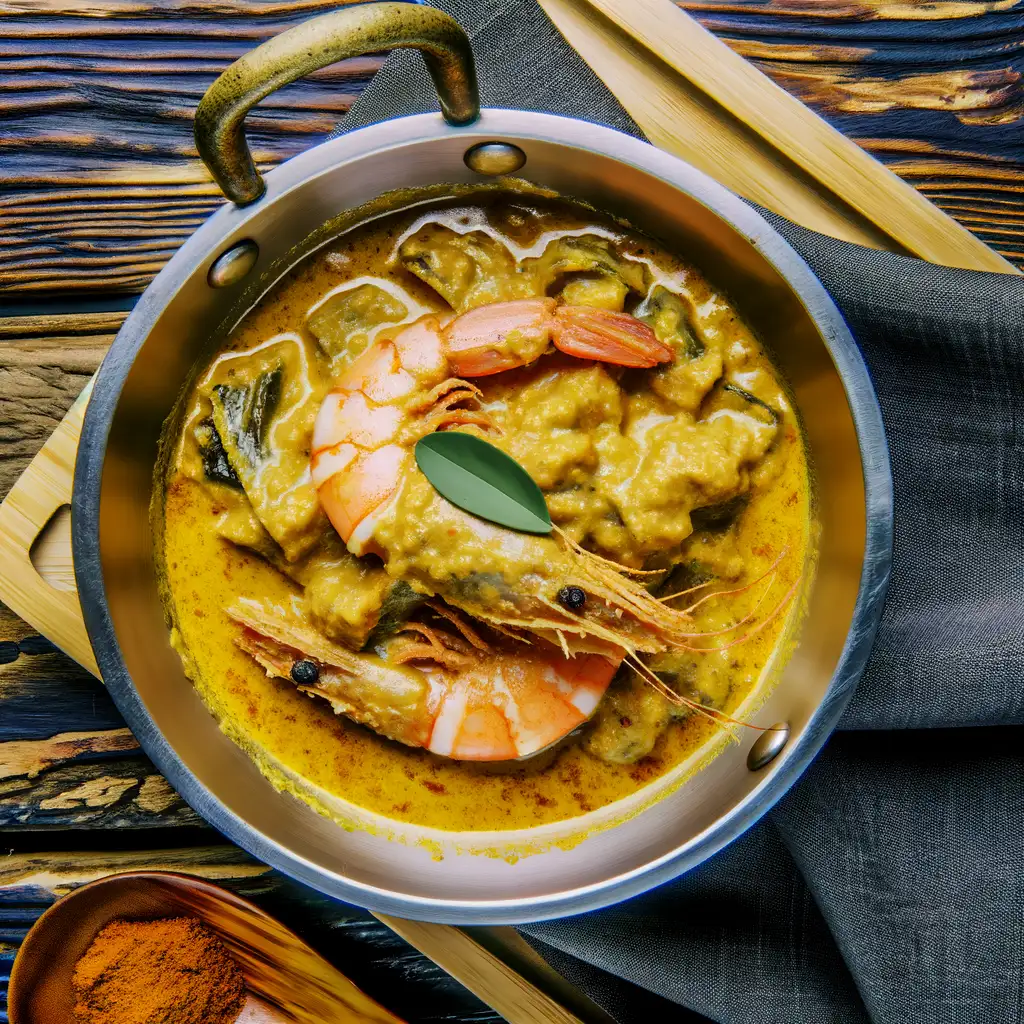
A rich and creamy prawn curry made with coconut milk and spices, showcasing the coastal flavors of Bangladesh.
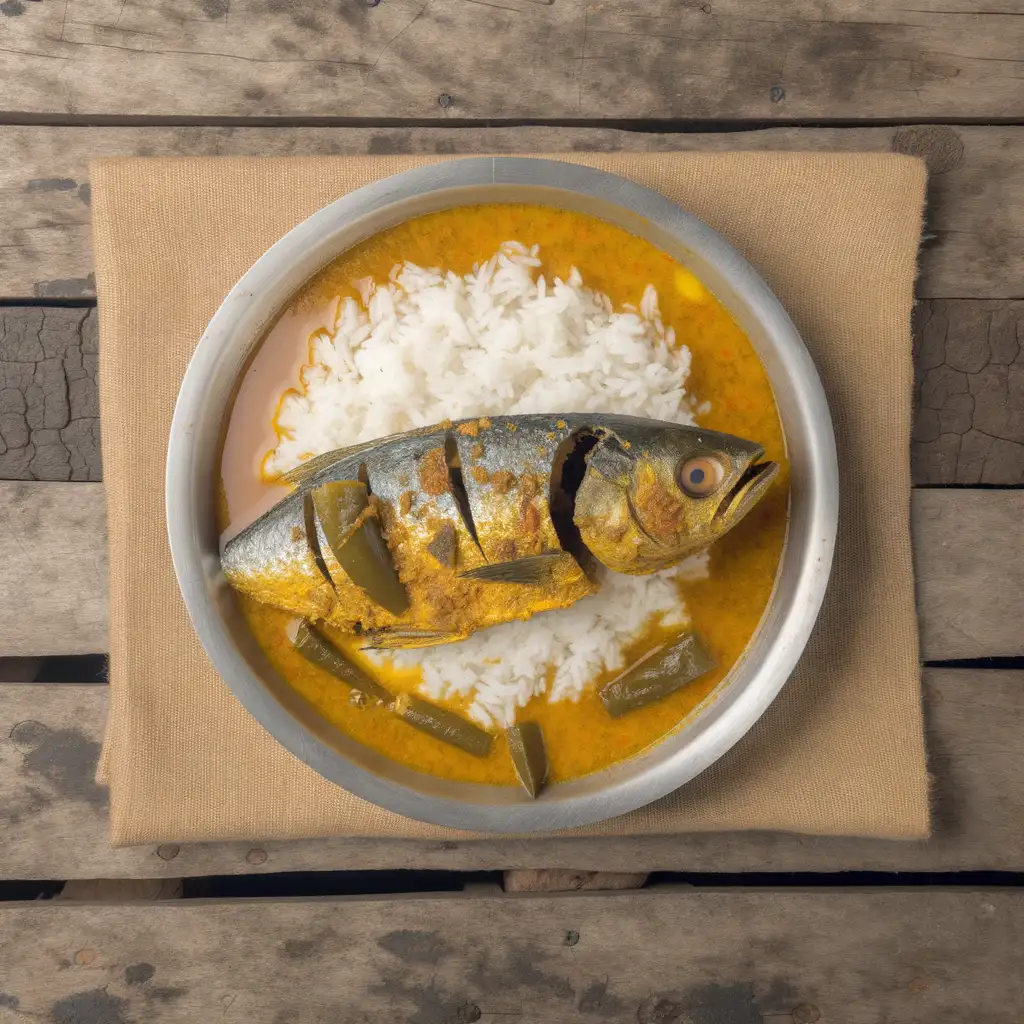
A flavorful curry made with the famous Hilsa fish, cooked with mustard seeds, green chilies, and spices, representing the culinary heritage of Bangladesh.
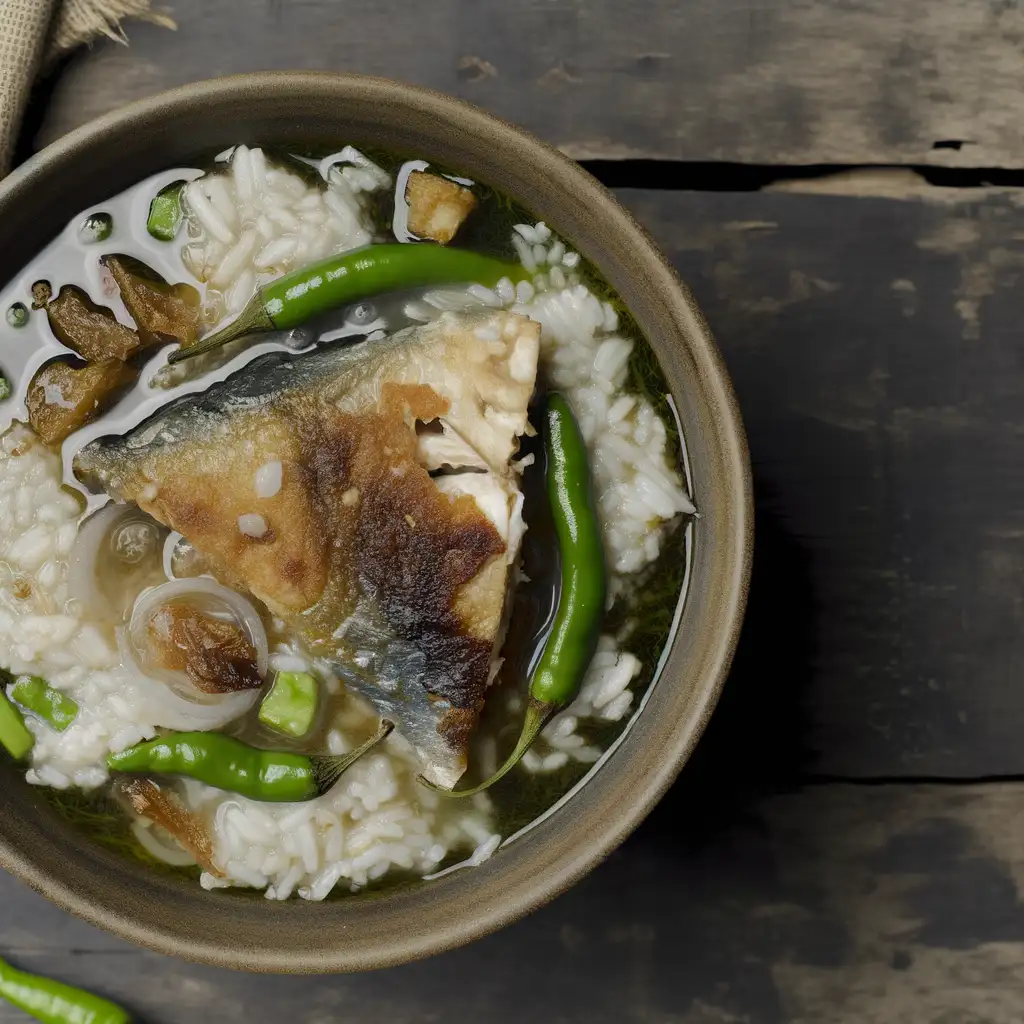
A traditional dish made of fermented rice, often served with fried fish, pickles, and green chilies, especially popular during the Bengali New Year.
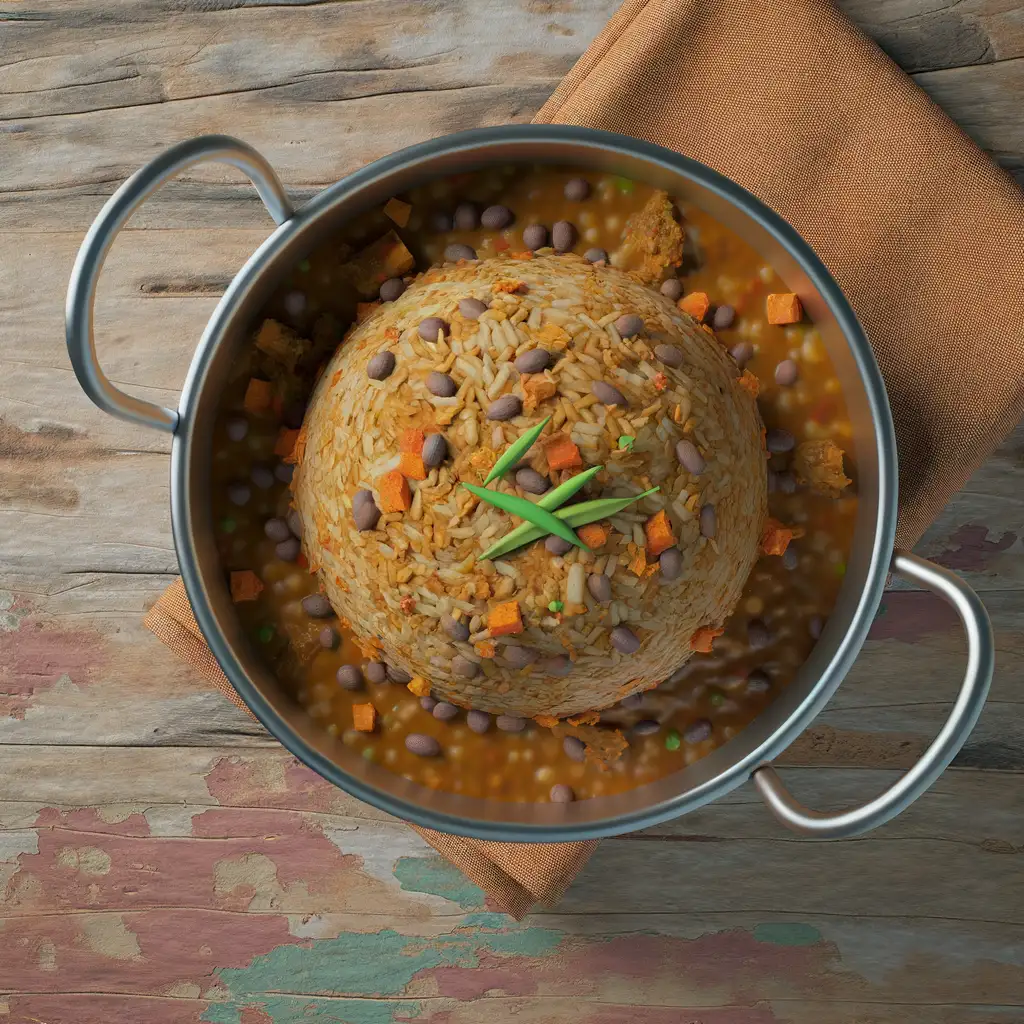
A comforting one-pot dish made with rice and lentils, often cooked with spices and sometimes mixed with meat or vegetables, especially enjoyed during the monsoon season.
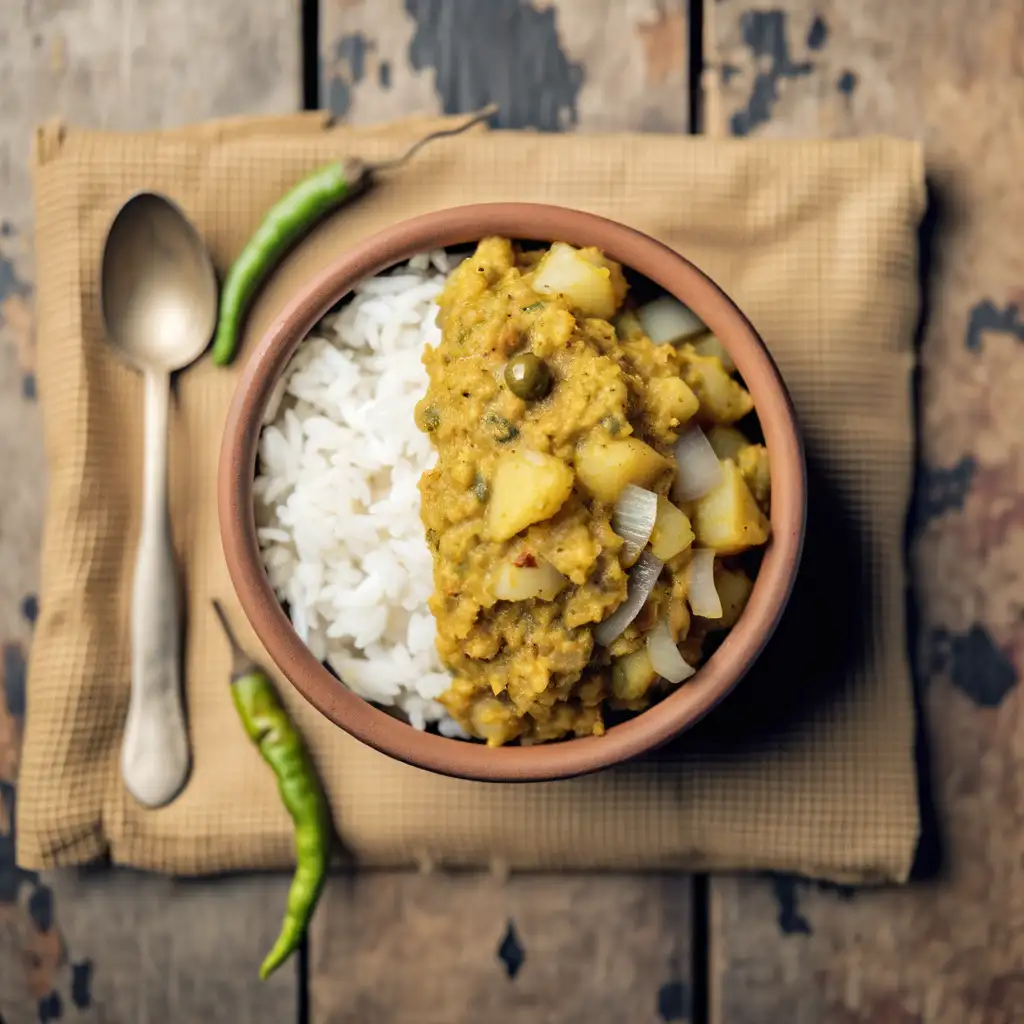
A mashed potato dish mixed with mustard oil, onions, and green chilies, often served as a side with rice and lentils.
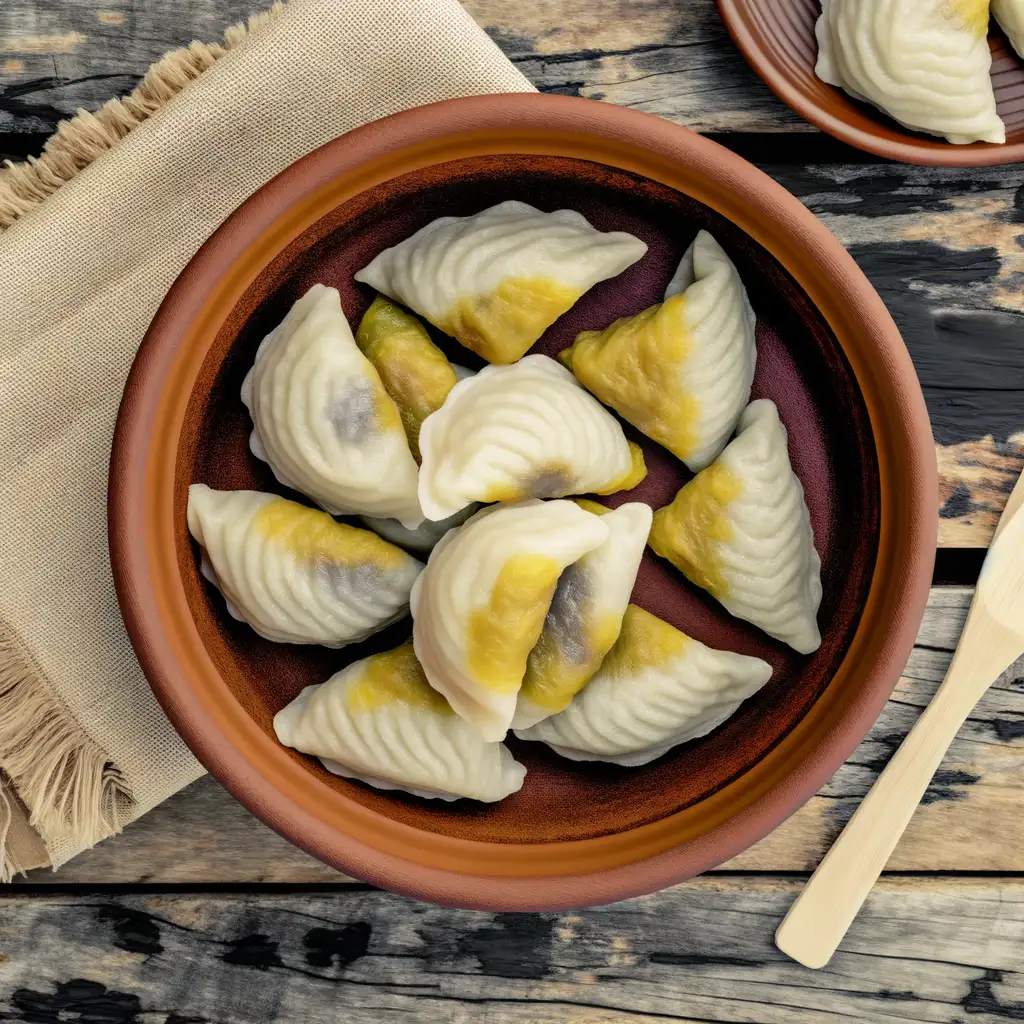
A variety of rice cakes or dumplings, often filled with sweet or savory ingredients, commonly enjoyed during winter festivals.

Hilsa fish cooked in a mustard sauce, a classic Bengali dish that highlights the unique taste of mustard and the freshness of the fish.

A traditional chicken curry made with a blend of spices, potatoes, and sometimes boiled eggs, served with rice or bread.
If you ever find yourself craving a place where the ocean stretches endlessly and the breeze carries a salty whisper,Cox’s Bazar in Bangladesh is where you should go. The moment you step onto its famously long sandy beach—the longest natural sea beach in the world—you’ll feel a kind of calm wash over you. The waves rhythmically lap against the shore,mingling with the distant chatter of fishermen and the calls of seabirds overhead. It’s a place where time slows down,inviting you to sink your toes into the warm sand and watch the sun paint the sky in shades of orange and pink.
But Cox’s Bazar isn’t just about the beach. The town pulses with a vibrant,welcoming energy. Local markets buzz with life,filled with the scent of fresh spices and the sizzle of street food stalls offering everything from crispy fried hilsa fish to sweet,sticky pitha. The people here are incredibly warm,often eager to share stories about their culture or recommend the best spot for a cup of chai. You’ll notice the colorful fishing boats bobbing in the harbor,a testament to the town’s deep connection to the sea.
What truly makes Cox’s Bazar special is its blend of natural beauty and genuine human warmth. Whether you’re wandering through the nearby hills,exploring Buddhist temples,or simply watching the sunset with a fresh coconut in hand,there’s a sense of peaceful adventure that stays with you long after you leave. It’s a place that invites you to slow down,breathe deeply,and soak in the simple joys of life by the sea.
The capital city of Maldives,Malé is a gateway to the country's world-famous islands and luxury resorts. It offers pristine beaches,turquoise waters,and unparalleled marine life for snorkeling and diving.
ExploreImagine stepping into a place where the air hums with the gentle rhythm of waves lapping against sun-warmed shores,and the scent of salty sea mingles with fragrant street food stalls. That’s Phuket for you—a vibrant island that feels alive in every sense. It’s not just the stunning beaches that grab you,but the way the island pulses with a laid-back energy,where colorful markets buzz with chatter and the aroma of grilled seafood fills the air. Walking through the old town,you’ll find charming Sino-Portuguese buildings painted in pastel hues,their shutters creaking softly in the tropical breeze,while tuk-tuks zip by,adding a playful soundtrack to your explorations.
Phuket’s character is a beautiful blend of tradition and liveliness. Temples with golden spires peek out from lush greenery,inviting quiet moments of reflection,while nearby,night markets burst with life—vendors calling out,sizzling woks,and the sweet tang of mango sticky rice tempting your taste buds. The island’s culture is warm and welcoming,with locals who smile easily and share stories over cups of strong Thai coffee or fresh coconut water.
What makes Phuket truly special is how it wraps you in its embrace—whether you’re watching a fiery sunset from a cliffside bar,diving into crystal-clear waters teeming with vibrant marine life,or simply savoring the spicy kick of a freshly made curry. It’s a place that invites you to slow down,soak in the colors,sounds,and flavors,and leave with a heart full of unforgettable moments.
If you step into Colombo District,you immediately feel the pulse of a city that’s both vibrant and laid-back,where old-world charm meets modern hustle. Imagine walking along bustling streets lined with colonial-era buildings,their faded facades telling stories of a rich past,while sleek glass towers rise nearby,reflecting the tropical sun. The air carries a mix of scents—spices from street food stalls,salty sea breeze from the nearby coast,and the faint aroma of jasmine from roadside vendors. It’s a place where the sounds of honking tuk-tuks blend with the call to prayer and the laughter of children playing in small parks.
Colombo’s character is a beautiful mosaic of cultures. You’ll find Buddhist temples nestled beside mosques and churches,and markets where Tamil,Sinhalese,and Muslim communities come together in a colorful dance of languages and traditions. The city’s food scene is a feast for the senses—imagine biting into a crispy hopper drizzled with coconut sambol or sipping on a strong,sweet Ceylon tea while watching the sunset over Galle Face Green,where locals fly kites and families gather to unwind.
What makes Colombo truly special is its warmth. Despite the city’s fast pace,there’s a genuine friendliness in the smiles of shopkeepers and the inviting chatter in cafés. It’s a place where you can lose yourself in vibrant street art one moment and find quiet reflection in a serene temple garden the next. Colombo isn’t just a destination; it’s an experience that stays with you long after you leave.
If you’re dreaming of a place where nature’s beauty feels like it’s wrapped around you like a warm hug,Langkawi is that kind of magic. The moment you step off the ferry or plane,there’s this gentle tropical breeze carrying the scent of salt and frangipani,instantly calming your mind. The island hums with a laid-back energy—no rush,just the soft rustle of palm leaves and the distant call of exotic birds. It’s the kind of place where time slows down,inviting you to soak in every vibrant detail.
Langkawi’s charm lies in its wild,lush landscapes meeting the turquoise sea. Imagine hiking through dense rainforests where sunlight filters through the canopy,dappling the forest floor,or standing on the Sky Bridge,suspended high above the treetops,with panoramic views that steal your breath away. The beaches aren’t just pretty—they’re alive with the sound of gentle waves lapping against powdery white sand,and the taste of fresh seafood grilled right on the beach,bursting with smoky,spicy flavors.
What really makes Langkawi special is its blend of cultures and stories. You’ll find local markets buzzing with friendly vendors offering tropical fruits and handmade crafts,while the island’s legends and history whisper through ancient temples and mangrove forests. It’s a place where you can lose yourself in nature,savor authentic Malay flavors,and feel the genuine warmth of the people. Trust me,Langkawi isn’t just a destination—it’s a feeling you’ll want to carry with you long after you leave.
Bali feels like stepping into a vibrant dream where every corner pulses with life and warmth. From the moment you arrive,there’s this unmistakable energy—part spiritual,part playful—that wraps around you like a soft,tropical breeze. Imagine waking up to the gentle rustle of palm leaves and the distant sound of waves crashing against volcanic black sand beaches. The air carries a mix of frangipani blossoms and salty sea spray,instantly grounding you in the island’s natural beauty.
What really makes Bali special is its rich culture woven into everyday life. You’ll see locals in colorful sarongs offering flowers at temple steps,hear the rhythmic beat of gamelan music drifting through the air,and catch glimpses of intricate wood carvings and vibrant paintings in small artisan shops. The island’s spirituality isn’t just something you observe—it’s something you feel,a quiet presence that invites you to slow down and connect.
And then there’s the food—oh,the food! Freshly grilled satay,fragrant nasi campur bursting with spices,and tropical fruits so sweet they almost taste like candy. Whether you’re dining in a bustling market or a cliffside café overlooking the ocean,every bite feels like a celebration of Bali’s rich flavors and traditions. Honestly,Bali isn’t just a place you visit; it’s a place that stays with you,long after you’ve left.
Tourists may be sold fake or low-quality products, such as handicrafts or textiles, at inflated prices under the guise of them being authentic or handmade.
Some money changers may give incorrect exchange rates or shortchange tourists during currency exchanges.
Scammers may approach tourists claiming to collect donations for a charity, school, or mosque, but the money is pocketed instead.
Tourists may be sold fake tickets to attractions or tours that do not exist, leaving them stranded or out of money.
Individuals posing as tour guides may offer their services and then demand exorbitant fees or lead tourists to overpriced shops where they receive commissions.
Tourists may be lured into booking accommodations that are misrepresented online or charged hidden fees upon arrival.
Drivers may charge tourists significantly higher fares than locals, especially if the tourist is unfamiliar with the standard rates.
Crowded areas, markets, and public transport are hotspots for pickpockets targeting tourists' wallets, phones, or bags.
Scammers may approach tourists with fabricated stories of personal hardship to solicit money or assistance.
Some street food vendors may inflate prices for tourists or provide smaller portions than what locals receive for the same price.
The use, possession, and trafficking of drugs are strictly prohibited in Bangladesh, including in Parvez Ali. The country has stringent anti-drug laws, and violations can result in severe penalties, including long prison sentences or even the death penalty for trafficking. Tourists should avoid any involvement with illegal drugs.
In Parvez Ali, Bangladesh, smoking is regulated under the Smoking and Tobacco Products Usage (Control) Act. Smoking is prohibited in public places such as hospitals, schools, public transport, and government offices. Designated smoking areas may be available in some locations, but tourists should be cautious and look for signage. Violators may face fines.
Vaping is not explicitly regulated in Bangladesh, including in Parvez Ali. However, it is generally treated similarly to smoking. Tourists should avoid vaping in public places or areas where smoking is prohibited to avoid potential issues. It is advisable to check with local authorities or establishments for specific rules.
What are other people saying about Parvez Ali?
Recent Social posts about Parvez Ali
There is nothing to show you for now.